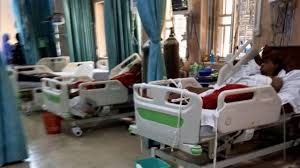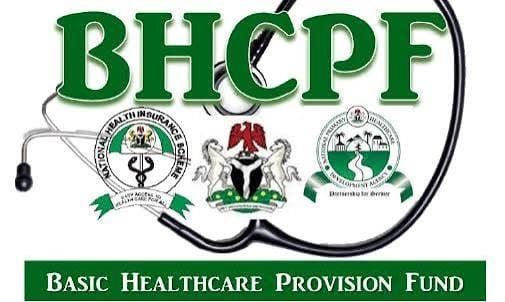
Inside UBTH emergency ward, where equipment shortages complicate lifesaving care. (Image Credit: Internet)
EDO, Nigeria – At exactly 6:45 a.m., the emergency ward at the University of Benin Teaching Hospital (UBTH) was already overflowing. Only two nurses were on duty. One was sprinting between beds; the other was trying to stabilise a child gasping for air. A faulty suction machine wheezed uselessly in the corner.
“I don’t know how long we can keep working like this,” one nurse said quietly. “Every week, someone resigns.”
In this report, Otamere Gladness examines Nigeria’s accelerating healthcare brain drain—a crisis now hollowing out hospitals, exhausting frontline workers, and pushing the nation’s fragile health system closer to collapse.
WHO Data: A Workforce in Free Fall
According to the World Health Organisation, Nigeria is experiencing one of the most severe health-worker exoduses in the world. The numbers are stark: 0.4 doctors per 1,000 people,
1.5 nurses per 1,000 people, 43,221 health professionals lost between 2020–2024,
4,193 doctors and dentists emigrated in 2024 alone, and 75,000 nurses have left since the COVID-19 pandemic.
The pandemic triggered a breaking point. WHO experts say nearly half of Nigeria’s medical graduates now leave within 15 years of completing training.
Many head to the UK, US, and Canada—destinations where they earn 10 to 20 times more and work under safer, better-equipped conditions.
Healthcare economists warn the losses are draining Africa of $2.2 billion yearly in training investments, calling it “one of the continent’s greatest preventable tragedies.”
UBTH: A Hospital Slowly Drowning
At UBTH—a 1,000-bed teaching hospital treating over 1,400 patients daily—the crisis is no longer abstract.
Dr Osaretin Asemota, President of the Association of Resident Doctors (ARD), describes a blistering reality: “One doctor now handles up to 30 patients. Two nurses cover 40 beds. It is unsustainable.
Nurse Otamere says conditions are deteriorating rapidly:
“The workload is extreme. Night shifts run into mornings. Supplies run out. Patients suffer because we’re stretched beyond human limits.”
Equipment failures turn emergencies into tragedies.
Nurse Lukman recalls a case that still haunts her: “A patient came in with a cardiac arrest. The AED didn’t work. He died. It was preventable.

Economic pressures worsen morale. Many health workers earn around ₦200,000 monthly, wages eroded by inflation, rising transport costs, and withheld benefits.
Promotion systems, several workers said, are riddled with patronage: “If you don’t know someone, forget it,” one nurse whispered.
For interns Ruth, Obehi and Elebi, the message is clear:
“Nigeria is training us for export. Staying back won’t give us a future.”
Migration as Survival: ‘We Are Tired of Hoping’
Among frontline workers, migration is no longer taboo—it is a strategy.
Nurse Lukman says she is actively processing her papers:
“It’s the only way to secure my family’s future.”
Nurse Otamere echoes the sentiment:
“People think we want luxury. No. We just want to work in conditions where patients are not dying because equipment failed again.”
Dr Asemota blames the government’s inconsistent funding: “₦11 billion was announced, but only ₦6 billion reached us,” he explained.
“₦44 billion went to clearing debt. Nothing changed in our daily operations.”
Advocacy groups say monitoring remains weak:
“Even trusted institutions need oversight,” one activist said. “Without it, we’ll continue bleeding talent.”
Government Response: Policies on Paper, Crisis in Reality
The Federal Ministry of Health insists it is taking “firm steps” to stem the exodus.
Among its efforts:
National Policy on Health Workforce Migration (August 2024)
Service bonds and diaspora-return schemes
Enhanced remuneration plans
Nigeria Strategic Directions for Nursing and Midwifery (2025–2030)
Pledge to support 28,000 workers with new salary adjustments
But frontline workers say the reforms feel distant.
Frequent strikes, chaotic funding flows and fragmented implementation erode confidence.
As of 16 November 2025, the Ministry had not responded to Africa Health Report’s request for comment.
Worker Support Systems: Progress, but Painfully Slow
Some states are investing in:
Anti-brain-drain programmes
Primary healthcare strengthening
Counselling and welfare services
Laws improving workplace protection
Yet the lived experiences are far less optimistic.
Workers still report: Withheld benefits, Inconsistent pay, unsafe conditions, and toxic managerial structures.
Many student nurses now see local medical training primarily as a steppingstone to emigration, a dangerous trend experts warn could hollow out the system for decades.
Advocacy Push: Breaking the Silence Around Losses
Advocacy groups are intensifying hospital campaigns to highlight the consequences of the brain drain.
One advocate said: “We are encouraging workers to speak up. But many are too burnt out, too afraid of retaliation.”
Experts urge transparency: “If understaffing is causing deaths, we must say it,” one warned. “Accountability cannot wait.”
National Emergency: The Call for Collective Action
Health analysts say the UBTH crisis reflects a nationwide collapse demanding immediate, coordinated reforms.
Their recommendations include:
Transparent funding systems
Inflation-adjusted salaries
Merit-based promotions
Massive infrastructure upgrades
Fairer employment practices
Stronger training and retention pathways
Safe reporting channels for health workers
One advocate summarised it bluntly:
“Our health system needs protection—not just in hospitals, but in the laws that govern them. Every Nigerian has a role.”
A Country at a Crossroads
The testimonies from UBTH, combined with WHO’s alarming data, paint a grim but urgent picture: Nigeria is losing its health workers faster than it can train them.
Unless decisive reforms take root, experts warn that the country may face a full-scale collapse of its healthcare system—one from which recovery could take decades.
For now, the voices of exhausted nurses, frustrated doctors, and anxious trainees serve as both warning and plea:
Reform the system—before the last caregiver turns off the lights.




